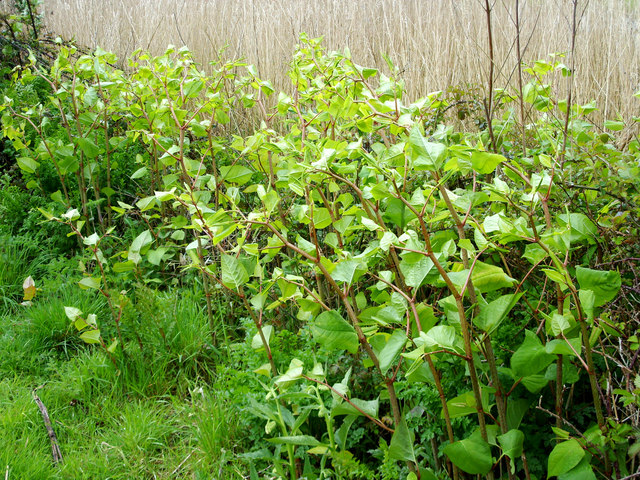
10 Jul, 2018/ by Surveyor Local /News
Japanese knotweed is rarely out of the news. Regarded as the most invasive and destructive plant, its risks to property have been well-documented over the decades with many mortgage lenders refusing to lend on a property where it is present.
However, the plant may not be as risky to property as previously believed, according to new research. Researchers from the University of Leeds teamed up with infrastructure firm AECOM to examine the threat of Japanese knotweed to property and found no evidence the plant caused any structural damage.
In fact, they concluded, this so-called scourge of homeowners is no more an invasive risk to property than any other plant or tree.
7-metre test for plant's presence
Typically a chartered surveyor who is a member of the Royal Institution of Chartered Surveyors (RICS) will look for the presence of knotweed when carrying out either a RICS Level 3 Survey or a RICS Level 2 Survey. Surveyor Local only works with RICS chartered surveyors who use a seven-metre test for knotweed.
Where knotweed is found and noted in the survey report, mortgage lenders will insist that a treatment programme to control the plant is put in the place, which can cause several thousand pounds. Other lenders may refuse to provide a mortgage, depending on the severity of the plant spread.
The research team quizzed 51 contractors and 71 surveyors who reported on 11 properties with knotweed in the garden, while another 68 abandoned properties were also looked at.
Nothing to suggest significant damage
Dr Mark Fennell, principal ecologist at AECOM, who led the research, said: "Our research sought to broaden existing knowledge about the risk to buildings of Japanese knotweed compared to other plants.
"We found nothing to suggest that Japanese knotweed causes significant damage to buildings - even when it is growing in close proximity - and certainly no more damage than other species that are not subject to such strict lending policies."
And co-author Dr Karen Bacon, from the University of Leeds' School of Geography, said: "The negative impact of Japanese knotweed on such factors as biodiversity and flooding risks remains a cause for concern.
"But this plant poses less of a risk to buildings and other structures than many woody species, particularly trees. Japanese knotweed is capable of damaging built structures, but where this occurs, it is usually because an existing weakness or defect has been exacerbated."
Court awards damages over knotweed spread
However, the long-accepted risk and threat of knotweed can be noted in a recent landmark court ruling in Wales where two neighbours sued Network Rail after knotweed spread into their gardens.
The court awarded each man £15,000 in damages, saying that Japanese knotweed is a "nuisance" and "natural hazard" and that landowners must do more to control it.
The latest research will certainly inform the property industry and mortgage lenders about what Japanese knotweed is capable and not capable of doing. However, in the short term, homebuyers should continue to err on the side of caution and ask a chartered surveyor to look for the presence of knotweed in the garden of any home they are interested in buying.
Surveyor Local's panel of nationwide chartered surveyors can provide the expert knowledge you require to make an informed decision on buying. Talk to our team now on or get an instant, no-obligation survey quote.
